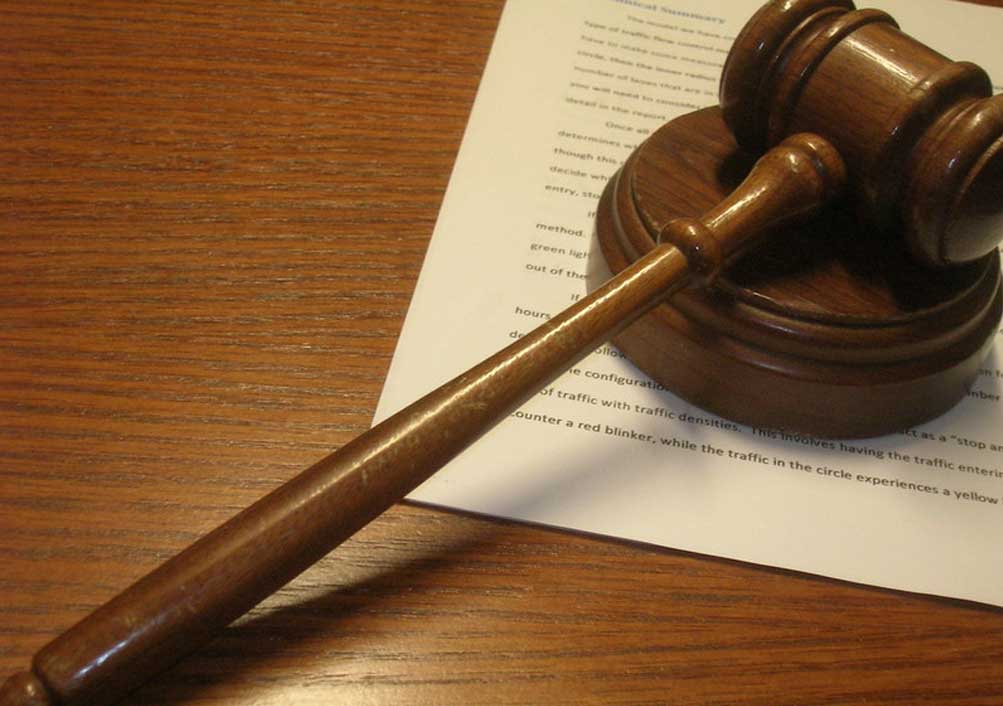In CR No.4794 of 2017 (O&M)-PUNJ HC-Decree holders cannot seek relief which was never granted to them in decree by filing execution petition; Executing Court cannot go behind decree: P&H HC Justice Alka Sarin [17-05-2022]

Read Order: Narayan Dass (since deceased) through his LRs v. Devender and Others
Moniak Rahar
Chandigarh, May 18, 2022: The Punjab and Haryana High Court has held that by filing an execution petition, the decree holders cannot seek a relief which was never granted to them when the decree was passed.
Further, the Bench of Justice Alka Sarin added, “In view of the discussion above and the settled law that the Executing Court cannot go behind the decree, this Court finds that the impugned order passed by the Executing Court does not suffer from any illegality or infirmity.”
The present revision petition under Article 227 of the Constitution of India was filed impugning the order passed by the Executing Court whereby the execution petition filed by the petitioner-DHs was dismissed.
The brief facts relevant to the present lis were that on July 31, 1996, the petitioner (Decree Holder- DHs) filed a suit for permanent injunction for restraining the respondent (Judgment Debtor- JDs) from opening any nali, window, ventilator, mori, door, etc. in the Gali of the petitioner-DHs. The Trial Court, however, dismissed the suit but the lower Appellate Court, decreed the suit.
In 2013, the petitioner-DHs filed an execution petition wherein it was averred that the respondent-JDs were creating a hindrance and obstructions in the construction of a wall in the Gali by the petitioner-DHs. Some of the respondent-JDs filed objections to the execution petition stating that they did not violate the judgment and decree. It was submitted that as per the decree, the respondent-JDs were restrained from opening any nali, window, ventilator, mori, door, etc. in the Gali of the petitioner-DHs and that they did not do so.
It was further submitted that the petitioner-DHs, under the garb of the decree wanted to block the single way for the ingress and egress of the plot owned by the some of the respondent-JDs whereas neither was such a prayer made by the petitionerDHs in the plaint nor was such a relief granted by the lower Appellate Court in its decree and that the petitioner-DHs had no right to block the single way for the egress and ingress of the plot owned by the said respondent-JDs.
Vide the impugned order, the Executing Court dismissed the execution petition holding inter-alia that even PW1 in his cross-examination admitted that the said respondent-JD never opened nali, door, ventilator, window, mori etc. towards the passage and that since no opening was constructed or made in the said Gali, it could not be said that the respondent-JDs violated the judgment and decree. Hence, the present revision petition was filed.
The Counsel for the petitioner-DHs contended that once a decree of permanent injunction was passed against the respondent-JDs, they could not stop the petitioner-DHs from raising any construction in the Gali and doing so amounted to violation of the judgment and decree. It was submitted that the Executing Court erred in law in dismissing the execution petition.
After considering the above mentioned, the Court observed that the decree passed in favour of the petitioner-DHs was to restrain the respondent-JDs from opening any nali, window, ventilator, mori, door, etc. and there was no allegation that the respondent-JDs opened any nali, window, ventilator, mori, door, etc. in the Gali of the petitioner-DHs.
Rather, the Court noted that the grouse of the petitioner-DHs was that the respondent-JDs were creating a hindrance in the construction of a wall by the petitioner-DHs. Regarding this grievance, the Court opined that the decree no where dealt with giving any permission to the petitioner-DHs to raise construction in the Gali and therefore, it was observed by the Court that clearly there was no violation of the decree by the respondent-JDs.
The Court added that by filing the execution petition, the petitioner-DHs cannot seek a relief which was never granted to them when the decree was passed.
Further, the Court made reference to the case of Gurdev Singh vs. Narain Singh, wherein it was held that executing court cannot go behind the decree and as the decree did not clothe the decree-holder to pray for execution of the decree by way of removal of the trees, the same could not have been directed by the learned executing court in the name of construing the spirit of the decree under execution.
Thus, in view of the above, the Court was of the opinion that it is the settled law that the Executing Court cannot go behind the decree. Accordingly, the Court found that the impugned order passed by the Executing Court did not suffer from any illegality or infirmity.
Sign up for our weekly newsletter to stay up to date on our product, events featured blog, special offer and all of the exciting things that take place here at Legitquest.




Add a Comment